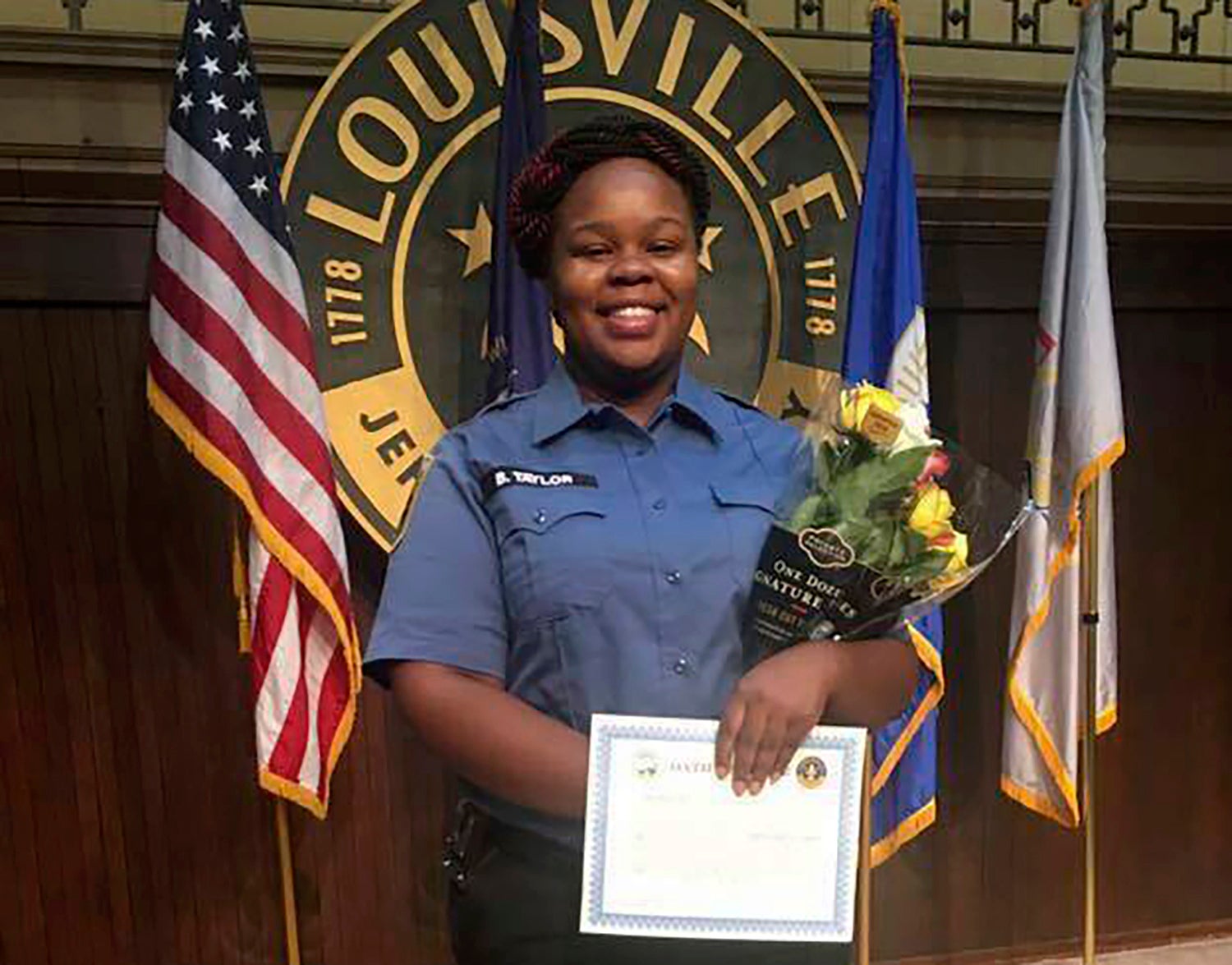Kentucky limits no-knock warrants after Breonna Taylor death
Kentucky Gov. Andy Beshear has signed a partial ban on no-knock warrants a year after the fatal shooting of Breonna Taylor

Your support helps us to tell the story
From reproductive rights to climate change to Big Tech, The Independent is on the ground when the story is developing. Whether it's investigating the financials of Elon Musk's pro-Trump PAC or producing our latest documentary, 'The A Word', which shines a light on the American women fighting for reproductive rights, we know how important it is to parse out the facts from the messaging.
At such a critical moment in US history, we need reporters on the ground. Your donation allows us to keep sending journalists to speak to both sides of the story.
The Independent is trusted by Americans across the entire political spectrum. And unlike many other quality news outlets, we choose not to lock Americans out of our reporting and analysis with paywalls. We believe quality journalism should be available to everyone, paid for by those who can afford it.
Your support makes all the difference.Kentucky Gov. Andy Beshear signed a partial ban on no-knock warrants Friday after months of demonstrations set off by the fatal shooting of Breonna Taylor in her home during a botched police raid.
Taylor, a 26-year-old Louisville emergency medical technician studying to become a nurse, was shot multiple times in March 2020 after being roused from sleep by police. No drugs were found, and the warrant was later found to be flawed.
The law signed by the Democratic governor is not the total statewide ban many demonstrators and some Democratic lawmakers had sought, but it drew bipartisan support in the Republican-controlled legislature. It only permits no-knock warrants if there is “clear and convincing evidence” that the crime being investigated "would qualify a person, if convicted, as a violent offender.”
The warrants must be executed between 6 a.m. and 10 p.m. and officers are required to take additional steps to obtain warrants. Judges are also required to sign legibly when approving them and an EMT must now be nearby during execution of the warrant.
In the Taylor case, a no-knock warrant was approved as part of a narcotics investigation. Nonetheless, police said they did knock and announce their presence before entering Taylor’s apartment, though some witnesses have disputed that claim.
In September, a grand jury indicted one of the officers on wanton endangerment charges for shooting into a neighbor’s apartment, but none was charged in connection with Taylor’s death. That was based in part on the presentation of Republican Attorney General Daniel Cameron, who recommended no charges against the officers who shot into Taylor’s apartment.
One of those officers, Myles Cosgrove, was fired, as was officer Joshua Jaynes, who had secured the warrant. Federal ballistics experts said they believe the shot that killed Taylor came from Cosgrove.
The legislation does not interfere with Louisville’s local ban on all no-knock warrants. Virginia passed a ban on all no-knock warrants last year. The warrants are also not permitted in Oregon and Florida.
___
Hudspeth Blackburn is a corps member for the Associated Press/Report for America Statehouse News Initiative. Report for America is a nonprofit national service program that places journalists in local newsrooms to report on undercovered issues.